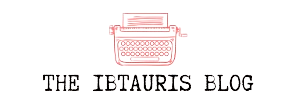If we were to revisit ethics codes with a fresh perspective, I believe we could—and should—incorporate the fundamental guiding principles that are prevalent in most codes today. However, I envision a set of principles that transcends borders and addresses the increasingly global nature of contemporary journalism. While I appreciate the specificity of principles like those outlined by SPJ, it seems narrow-minded to invest in an ethics code that’s limited to the confines of a single nation-state.
Certain journalists and scholars have already made efforts to delineate global principles. Stephen Ward, a prominent figure in media ethics, has proposed three principles for global journalism ethics: providing the public with credible news and analysis, being able to justify the consequences of one’s actions, and prioritizing allegiance to humanity as a whole rather than any particular faction of it. While I’m attracted to Ward’s principles for their universal appeal and their ability to accommodate the complexities inherent in journalistic practice, I’m uncertain if these principles are sufficiently concrete.
Certainly, crafting principles suitable for a global, digital era would require substantial effort. However, I firmly believe that principles alone don’t suffice. Ethical quandaries frequently arise where principles may clash, presenting challenges. Without a clear hierarchical arrangement of these principles—a scenario I deem improbable—journalists may find themselves torn between pursuing multiple actions that are mutually exclusive.
Take, for instance, this scenario: A journalist working for Grantland, a sports and pop culture website under ESPN, dedicated eight months to crafting a profile of a woman who had developed an innovative putter that some prominent golfers claimed significantly enhanced their performance. Throughout his investigation, Caleb Hannan uncovered various details about his subject, Essay Anne Vanderbilt (known as Dr. V), including inaccuracies in her professional and academic background. It emerged that she lacked the credentials she purported to possess, had no affiliation with the Vanderbilt family, and worked as a mechanic rather than a physicist. Furthermore, Hannan discovered that prior to 2000, Dr. V had lived as a transgender woman, having previously gone by a male name. Tragically, Dr. V took her own life in late October 2013. The 7,700-word article was published on Grantland in January 2014, detailing Dr. V’s misrepresentations of her qualifications. Toward the conclusion of the piece, Hannan also disclosed Dr. V’s transgender identity and the fact of her suicide during the course of his investigation.
Was Hannan’s conduct during the process of gathering information for his article, as well as his decision to disclose Dr. V’s transgender identity, unethical? And in the context of this discussion, could an ethics code have provided Hannan with guidance on his actions?
According to the SPJ code, journalists are instructed to both seek and report the truth while minimizing harm. In particular, journalists are urged to “courageously tell the story of the diversity and breadth of human experiences, even when it may be unpopular to do so,” while also being advised to “demonstrate compassion for those who may be adversely affected by news coverage.” Here, two of the SPJ’s principles appear to conflict, and the code does not offer explicit guidance on which principle should take precedence.
This scenario is not an isolated incident. Many ethical dilemmas involve a clash between equally compelling principles, which is precisely what renders them ethical dilemmas. Therefore, because principles alone cannot always guide a journalist through such situations, I argue that ethics codes should also emphasize the importance of process.
In addition to outlining principles, ethics codes should encourage ethical reflection and dialogue. They should assist journalists in navigating dilemmas where it may be impossible to fully adhere to all principles simultaneously.
Ethics codes ought to prompt journalists to engage in explicit deliberation regarding the potential harms and benefits of various courses of action. They should encourage consideration of the virtues cherished by journalists and how those virtues can be put into practice, as well as the preservation of important relationships. Furthermore, codes should urge journalists to contemplate how they can protect the most vulnerable individuals. Lastly, ethics codes should encourage journalists to draw lessons from the experiences of their predecessors who have confronted similar situations.
In the instance of Dr. V, an ethics code emphasizing both process and principles could have assisted Hannan—and his colleagues whom he trusts as confidants—in deliberating in a manner that takes into account all the issues raised previously. Whether this would have altered the outcome remains uncertain, but at the very least, Hannan would have undergone a process conducive to developing an ethically justifiable rationale for his actions—a rationale he could have shared with his numerous critics. (Reports suggest that Hannan and his colleagues did discuss the case and explore alternatives, but this was not prompted by a specific ethics code.)
Ethics codes are often perceived, either implicitly or explicitly, as tools that simplify ethical decision-making, or at least make it more manageable. However, in my view, codes should actually complicate ethical dilemmas by illuminating all the pertinent issues, conflicting claims, and nuances that may not be immediately apparent when focusing solely on principles.
Ethics codes should also emphasize the importance of humility. Anyone who feels too confident about their actions in the face of an ethical dilemma likely hasn’t sufficiently pondered the situation. Maintaining a degree of uncertainty about decisions helps journalists ensure they navigate ethical dilemmas with caution.
In my view, this kind of approach—incorporating both principles and processes—represents a more effective strategy for addressing the complexities of journalism in the 21st century. Improving journalism ultimately hinges on having journalists—regardless of their location or medium of work—who engage in thoughtful and morally nuanced decision-making. Ethics codes can serve as a means of cultivating this sophistication.
Also Read: Was fashion responsible for the outbreak of the First World War?


